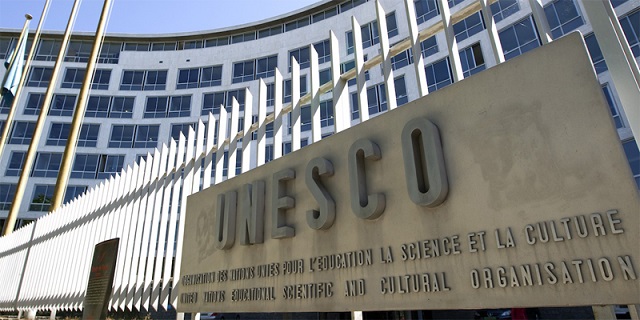
Paris, France | AFP | The board of the UN’s cultural body on Wednesday began vetting eight candidates vying to head an organisation accused of bias in the Israeli-Palestinian conflict and foot-dragging on reforms.
The UN Educational, Scientific and Cultural Organization infuriated Israel and its staunch ally the United States by granting full membership to Palestine in 2011.
Both countries suspended their funding to the agency — best-known for its prestigious World Heritage List — over the move.
Most recently, the Paris-based body delighted Palestinians when it declared the Old City of Hebron in the occupied West Bank an endangered World Heritage site.
Israeli Prime Minister Benjamin Netanyahu called the vote “another delusional decision” by UNESCO, which promotes quality education and cultural development around the world.
Vera El-Khoury, Lebanon’s candidate to replace outgoing director-general Irina Bokova, warned that UNESCO’s credibility would suffer if it did not “reduce the excessive politicisation of its proceedings that has sometimes turned it into a powder keg.”
A diplomat told AFP that “all the candidates agree on the need to find a way to end this politicisation.”
– Bring back the US –
The US funding cut dealt a particularly heavy blow to UNESCO as Washington’s contribution represented nearly a quarter of its budget.
Francois Chaubet, a contemporary history professor at Paris University, said one of the main challenges for the new director would be to “bring back the United States”.
Japan also cut funding after lashing out at UNESCO’s decision in 2015 to recall the 1937 Nanjing massacre of Chinese by Japanese troops in its Memory of the World register.
“The organisation has always been torn by influence struggles, notably during the Cold War and the decolonisation period,” Chaubet said.
Most of the candidates acknowledge the need to reform the 71-year-old organisation whose bloated bureaucracy is accused of inefficiency.
Qian Tang, China’s candidate who is seen as one of the frontrunners, called for “comprehensive reform” in an op-ed in Britain’s Daily Telegraph.
Tang, UNESCO’s current assistant director for education, said its programmes “need to be much more focused” while its “administrative procedures have to increase transparency and accountability.”
Bulgaria’s Bokova, whose second four-year term ends this year, was embarrassed last month by allegations her husband received at least 425,000 euros from an Azeri company linked to a slush fund used to pay off European politicians.
– Secret ballot –
Arab countries have complained that UNESCO has never had a boss from their region.
However, UNESCO does not observe a traditional rotation by world region for its chief, unlike for the UN secretary general.
Besides Tang, French former culture minister Audrey Azoulay and Egyptian career diplomat Moushira Khattab are among the favourites to head the agency.
The other candidates are from Azerbaijan, Iraq, Qatar and Vietnam.
The executive board, which has 58 member states, will begin electing a nominee by secret ballot on Monday.
If no candidate wins an outright majority after four rounds of voting, it goes to a run-off between the top two.
The candidate then must be approved by UNESCO’s 195 member states, but this is seen as a formality.
 The Independent Uganda: You get the Truth we Pay the Price
The Independent Uganda: You get the Truth we Pay the Price


